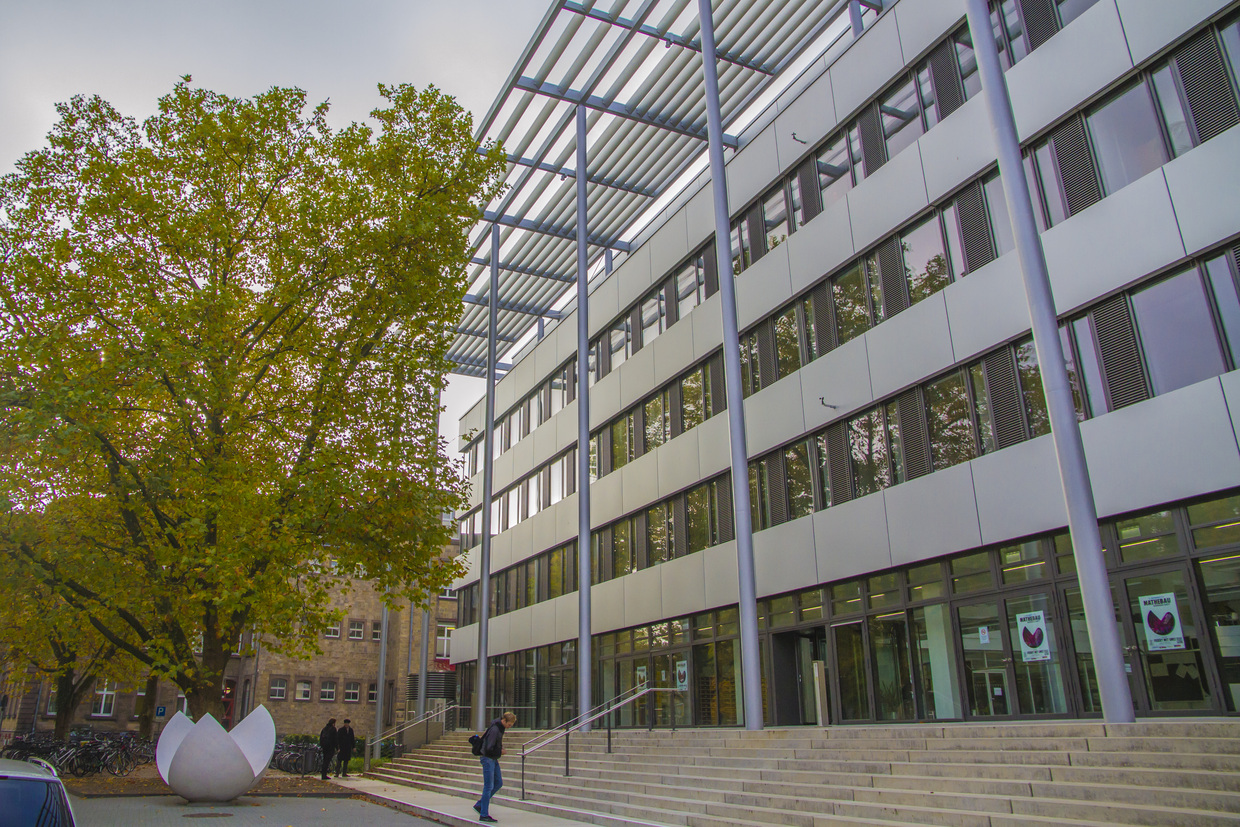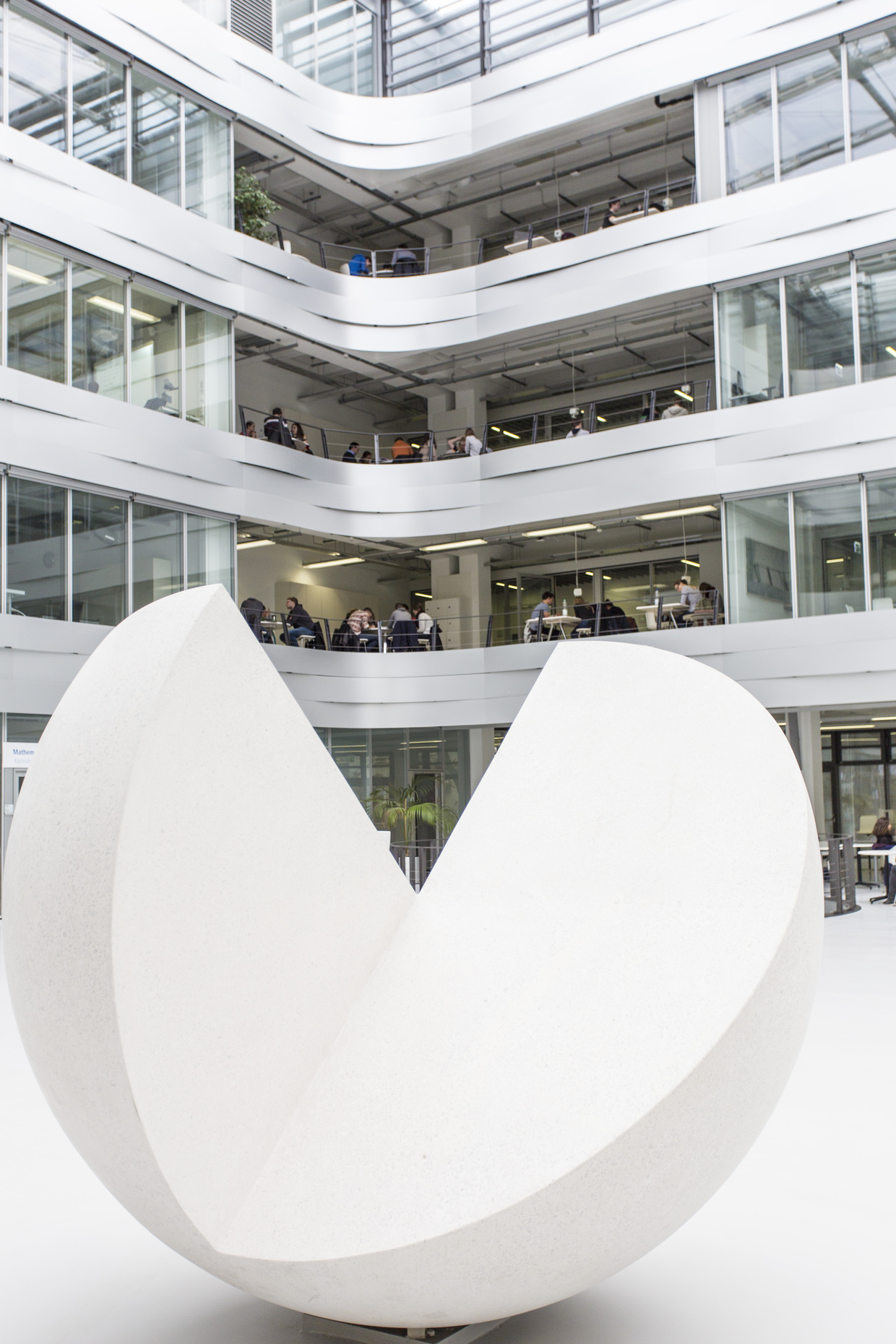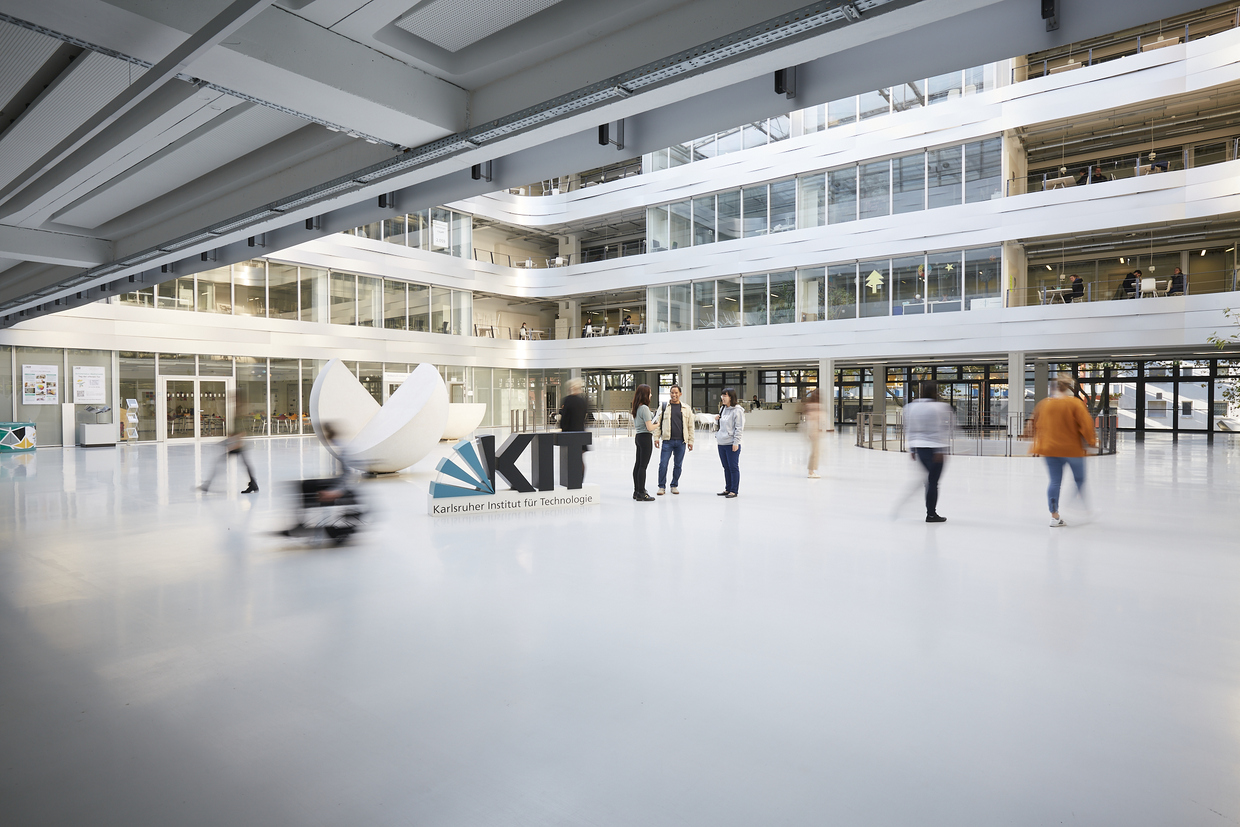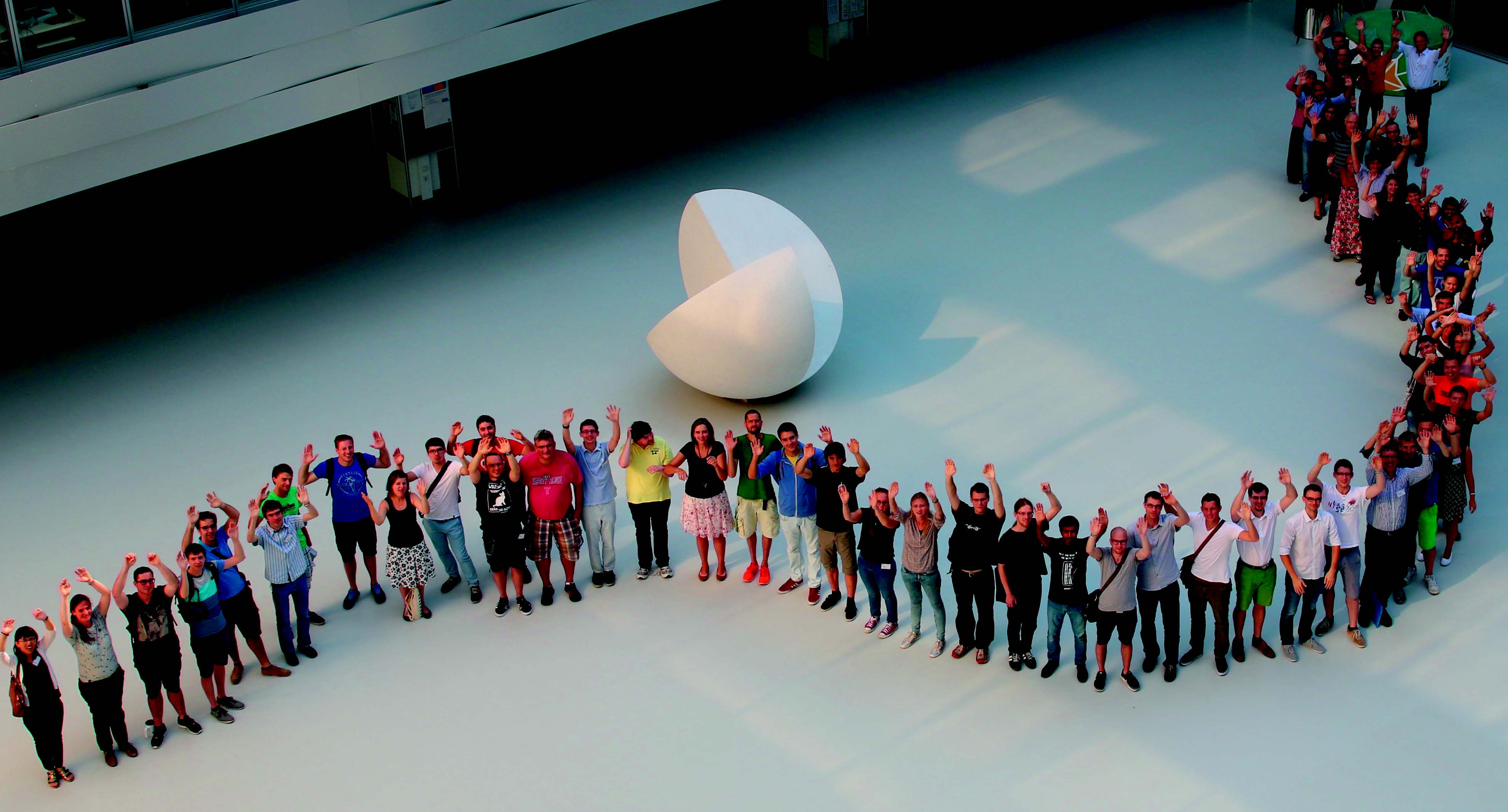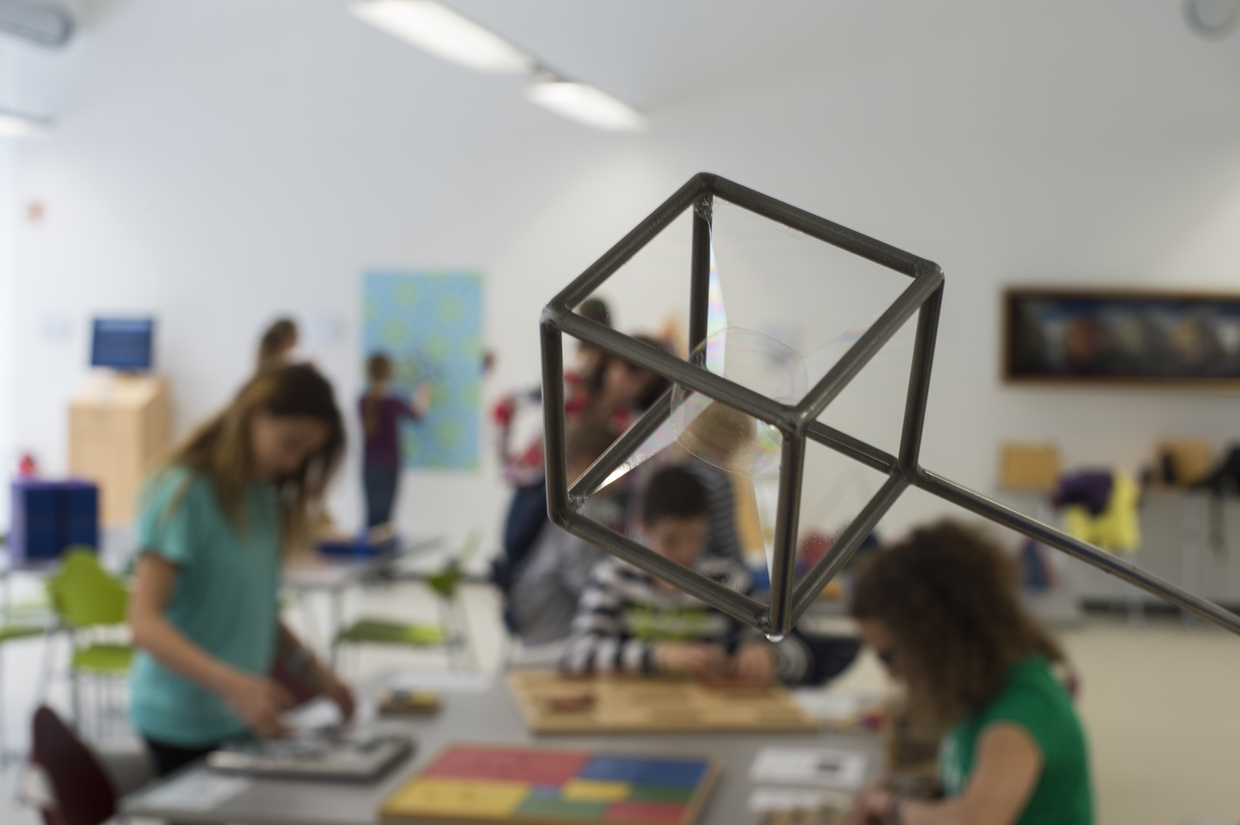Faculty of Mathematics
Founded in 1825
Institutes 4
Professorships 32
Students 900
Degree programs 10
Further information can be found here.

This timeline provides a clear overview of the significant events and developments in the history of the Faculty of Mathematics in Karlsruhe.
1825
Foundation of the Polytechnic School in Karlsruhe
Mathematics in the early days was geared towards the practical needs of engineers and architects. Descriptive geometry was of particular importance, with Guido Schreiber and Christian Wiener as prominent teachers.
1858 - 1863
Alfred Clebsch
Head of the Chair of Mechanics and Synthetic Geometry. The later co-founder of the "Mathematische Annalen" was the first important professor for mathematical research in Karlsruhe.
1899
Right to award doctorates
After the introduction of the habilitation in 1865 and the renaming to "Technische Hochschule", Karlsruhe was also granted the right to award doctorates in 1899. Subsequently, professors with purely mathematical research areas were appointed for the first time.
1946
Resumption of teaching
Mathematics becomes part of Faculty I for Natural Sciences and Humanities. It initially has three full professorships in mathematics and a chair in mechanics, as well as a few private lecturers.
1961 - 1963
Expansion of the mathematics department
As part of the general expansion of the universities, around 10 new professorships are established, including the first full professorship for statistics.
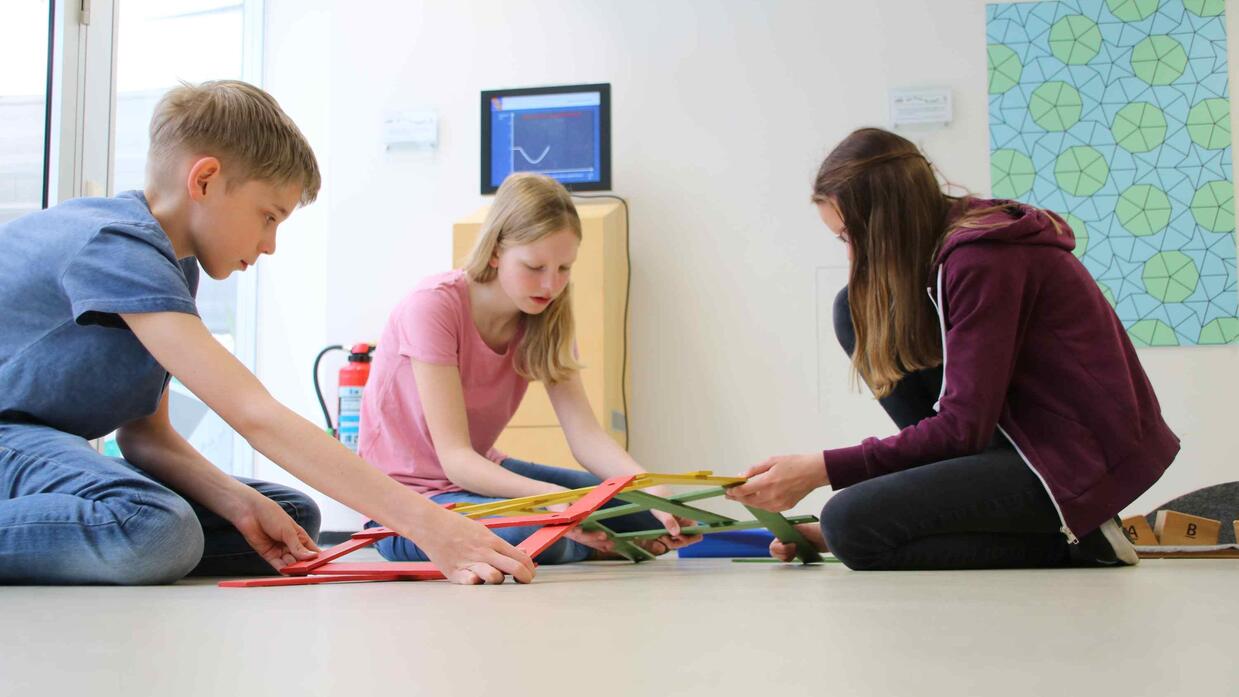
1967
Renamed the University of Karlsruhe (TH)
Mathematics becomes an independent faculty.
1970
Foundation of the Department of Mathematics Education
Later Department of Mathematics Education under the direction of Heinz Kunle. Further information can be found here.
2003
Establishment of a professorship for the didactics of mathematics
Appointment of Prof. Dr. Sebastian Bauer.
2009
Foundation of the Karlsruhe Institute of Technology (KIT)
Through the merger of the Karlsruhe Research Center and the University of Karlsruhe. The Faculty of Mathematics becomes part of Department 5 "Mathematics and Physics". Further information can be found here.
Current projects
CRC 1173 Wave Phenomena: Analysis and Numerics (2015-2027)
Two of our senses - sight and hearing - are based on the propagation of light and sound waves respectively, the human heartbeat is driven by depolarization waves, and modern communication technology is largely based on electromagnetic waves. Waves are everywhere, and understanding their behavior means understanding nature better. The aim of this Collaborative Research Center (CRC) is to analytically understand, numerically simulate and ultimately control the propagation of waves under realistic conditions. The extraordinary potential of our CRC lies in the close cooperation between researchers from analysis, numerics and special fields of application. The German Research Foundation is funding the CRC for a period of 12 years with a total of over 32 million euros.
School laboratory
Under the motto "Experience, discover and understand", the math laboratory welcomes the public, especially school classes, and has already been visited by over 40,000 people since it was founded in 2007. With curiosity and brains, you can puzzle, try out and marvel at over 80 exhibits. To delve deeper into mathematics, you can attend a mathematical workshop. Student teachers can gain their first teaching experience in the math lab and workshops. Pupils can join one of the gifted groups.
GRK 2229 Asymptotic invariants and limits of groups and spaces (2016-2025)
The limit concept of Leibniz and Newton is one of the intellectual masterpieces of science and the mathematical basis of natural science and technology. In modern geometry, the concept of limits has been extended from sequences of numbers to sequences of spaces (such as high-dimensional spacetimes). For the scientists of the Research Training Group (RTG), this new concept of limit is the starting point for the study of new fascinating geometries at infinity. The German Research Foundation is funding the RTG for a period of 9 years with a total of over 10 million euros.
Important personality
Alfred Clebsch was the first important holder of the Chair of Mechanics and Synthetic Geometry from 1858 to 1863. The influential book "Theorie der Elasticität fester Körper" (Leipzig, 1862) dates from his time in Karlsruhe. Clebsch was later one of the founders of mathematical invariant theory and, together with C. Neumann, founded the "Mathematische Annalen", one of the most important mathematical journals.

